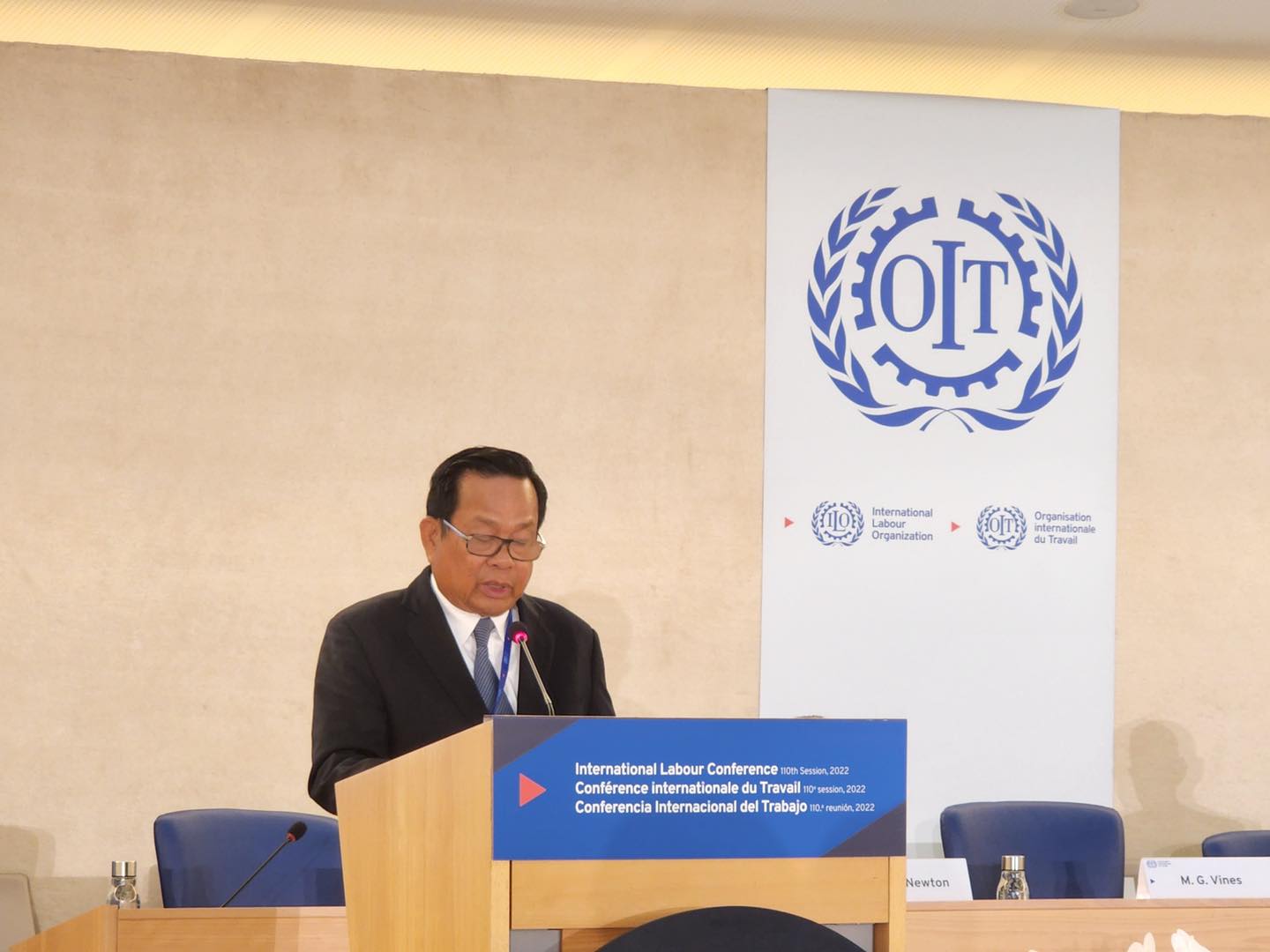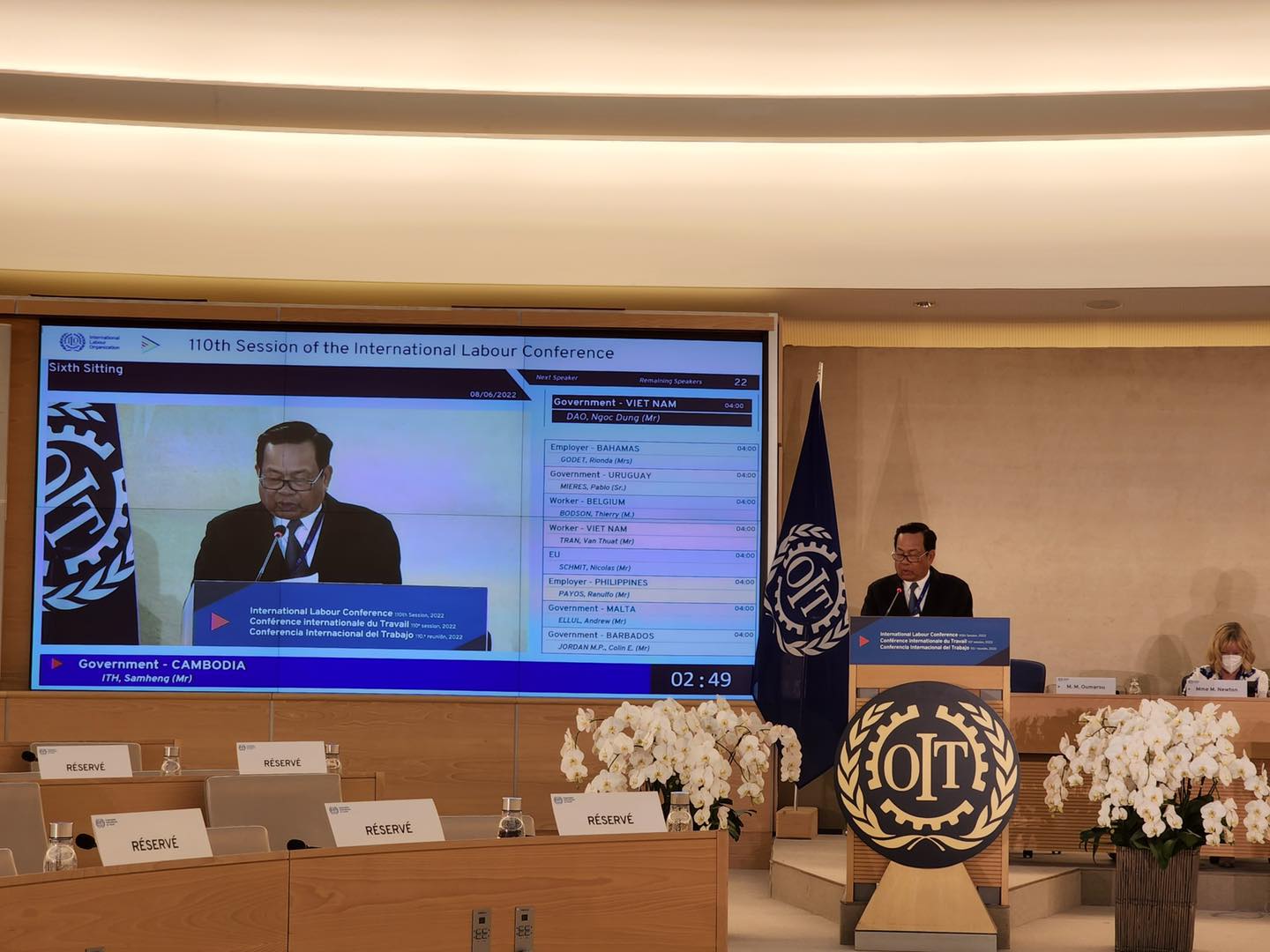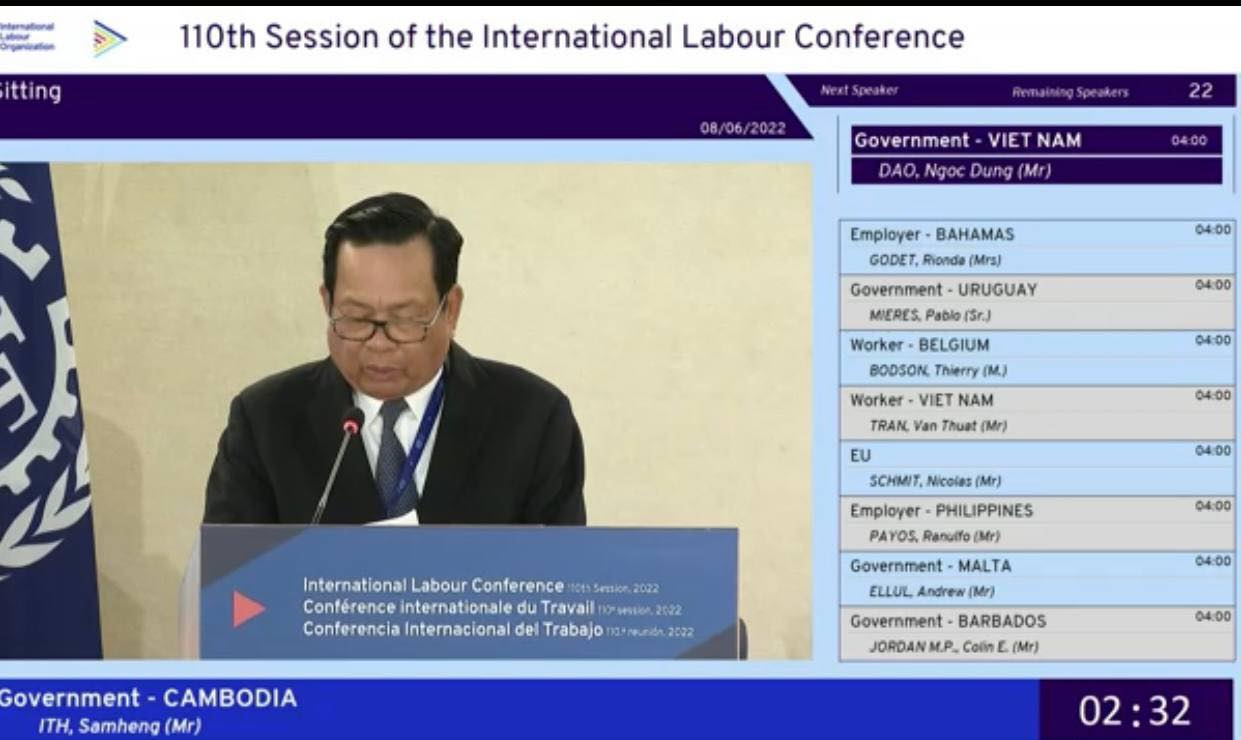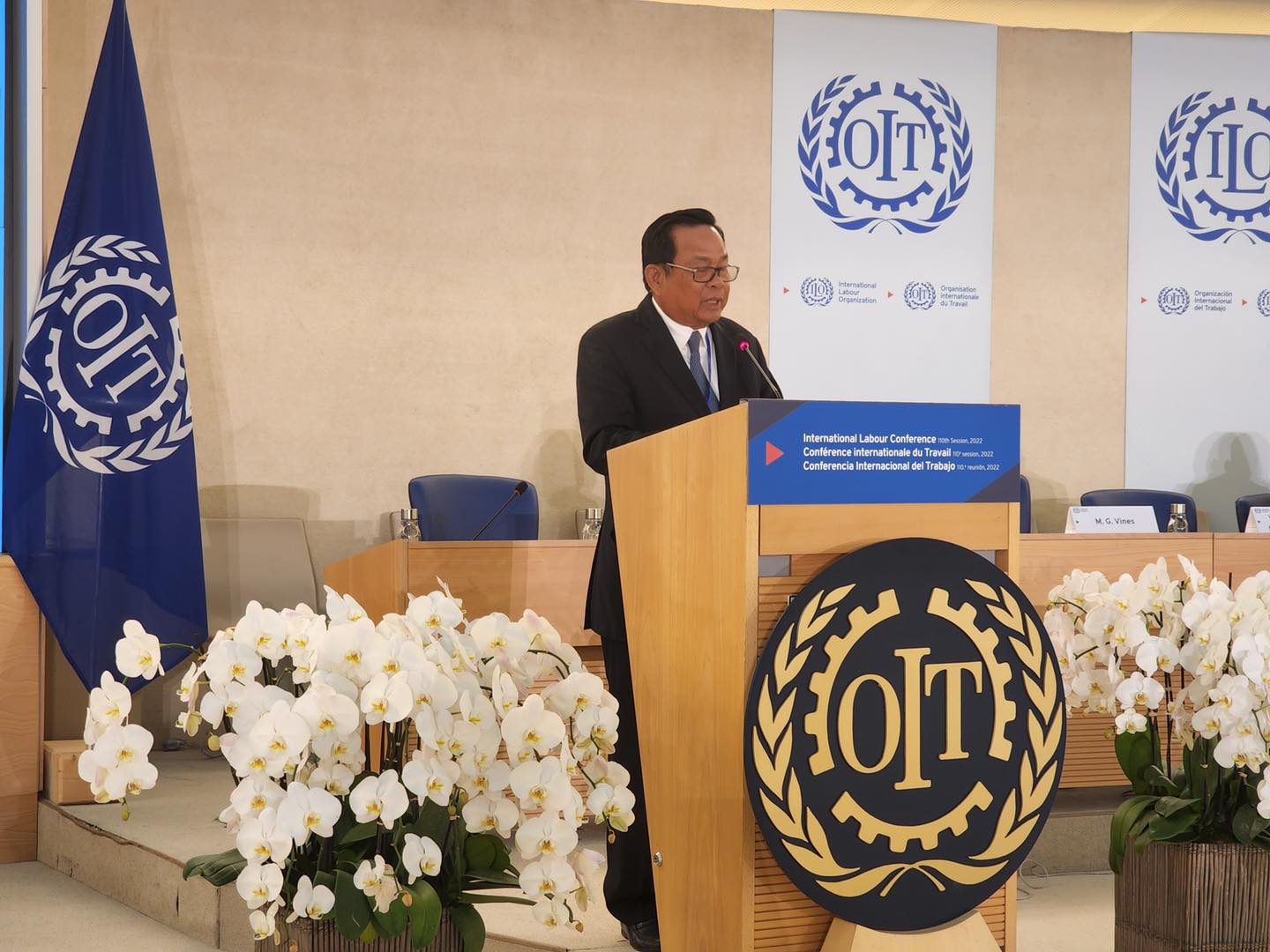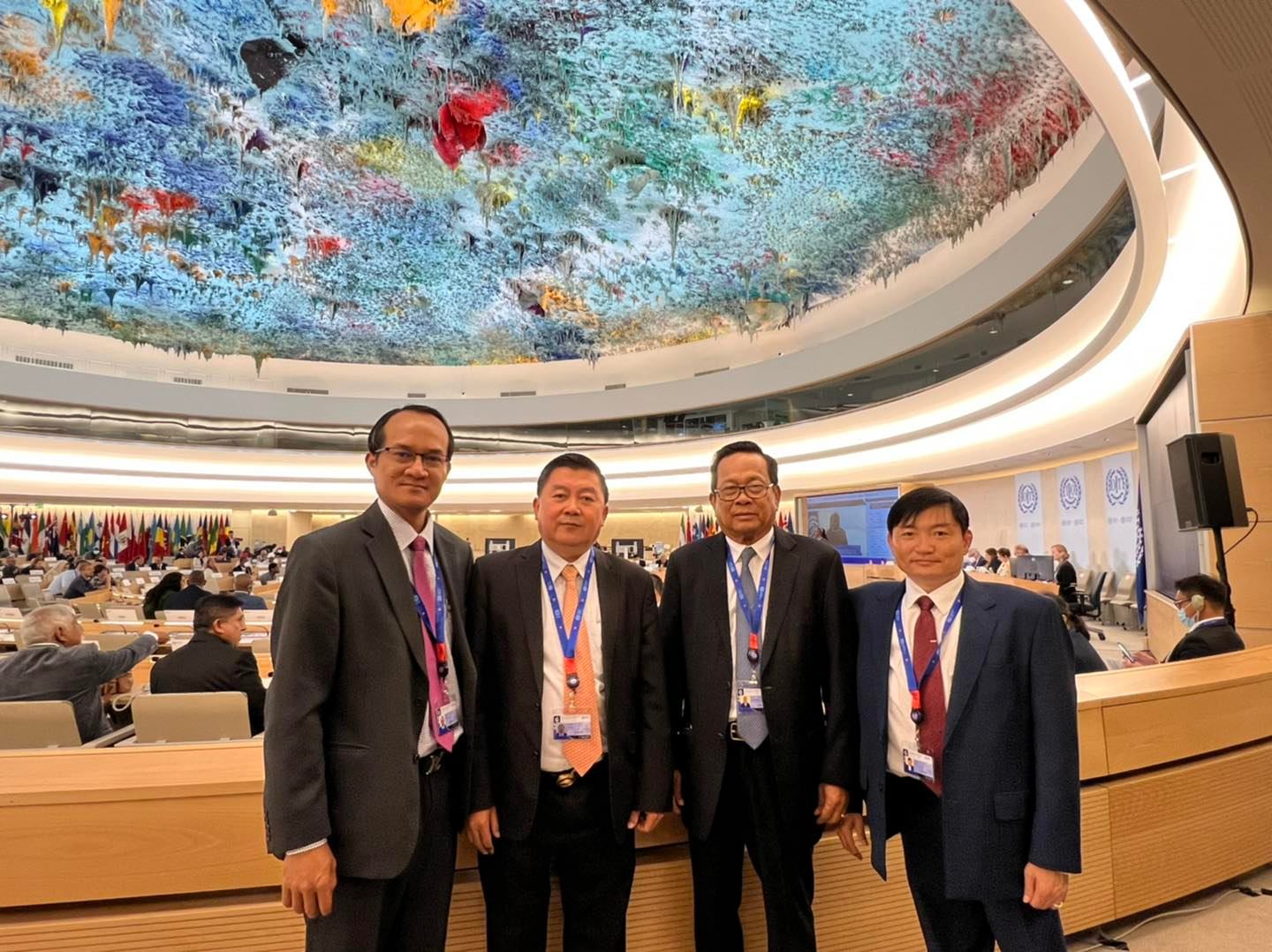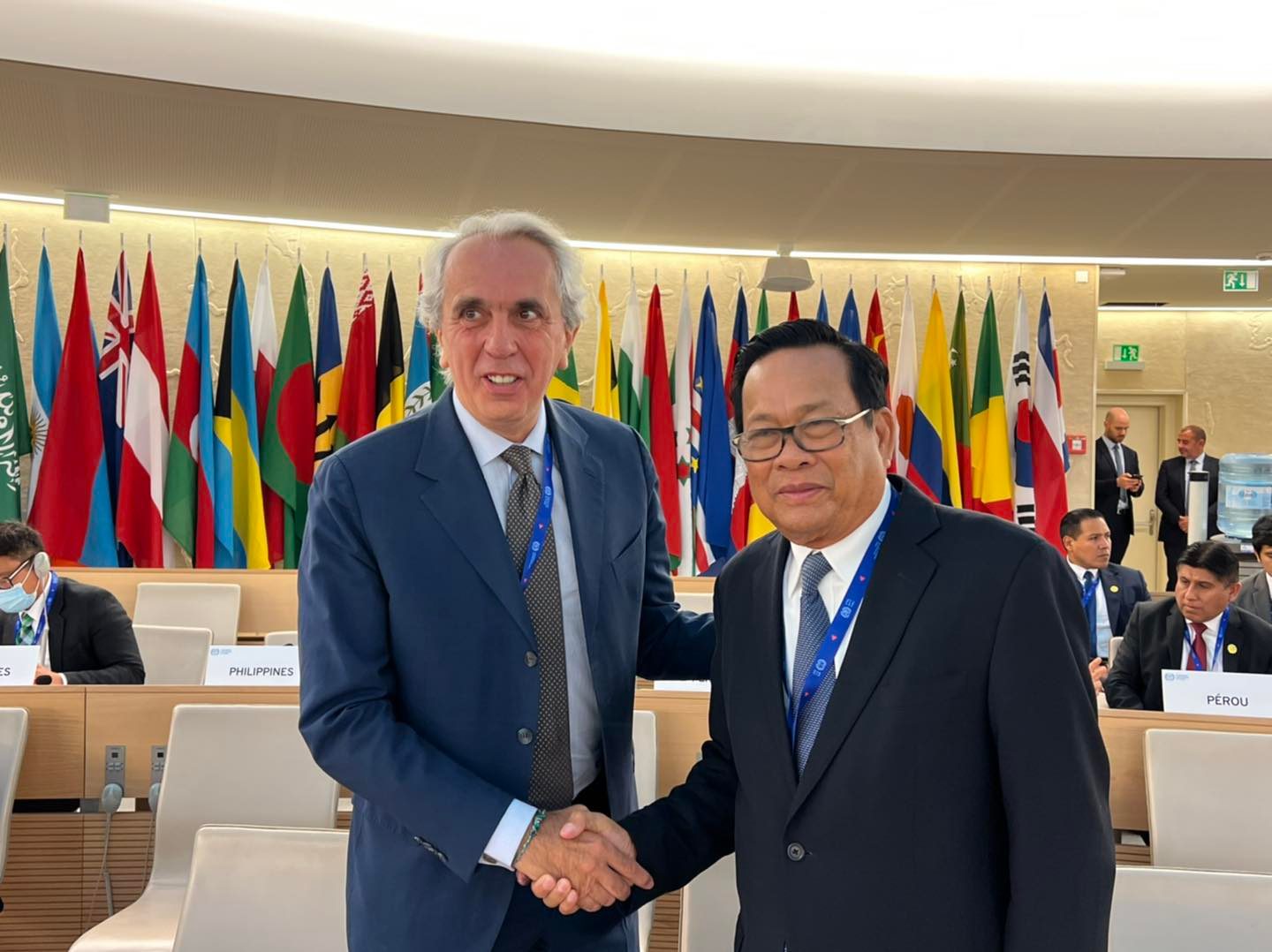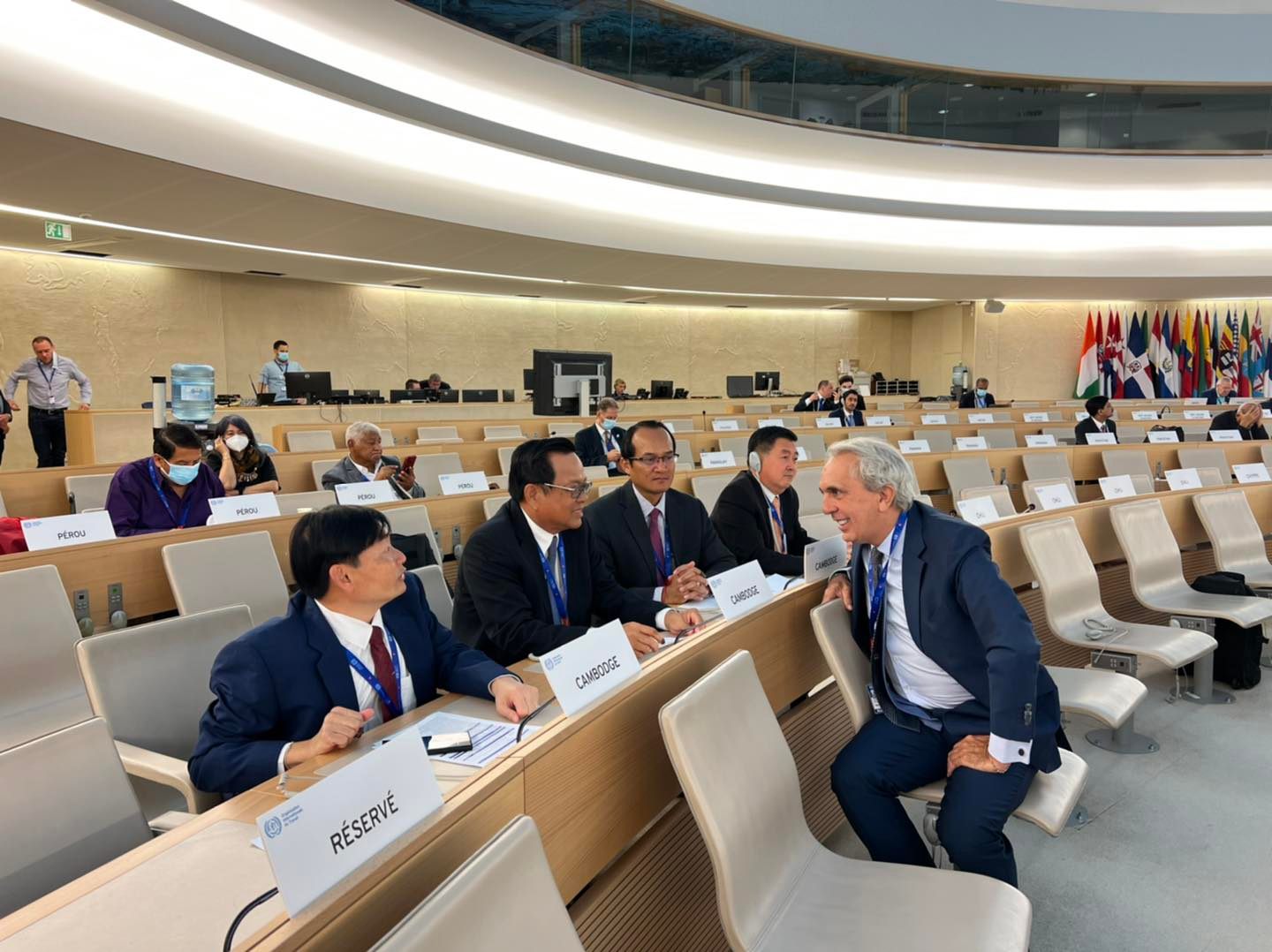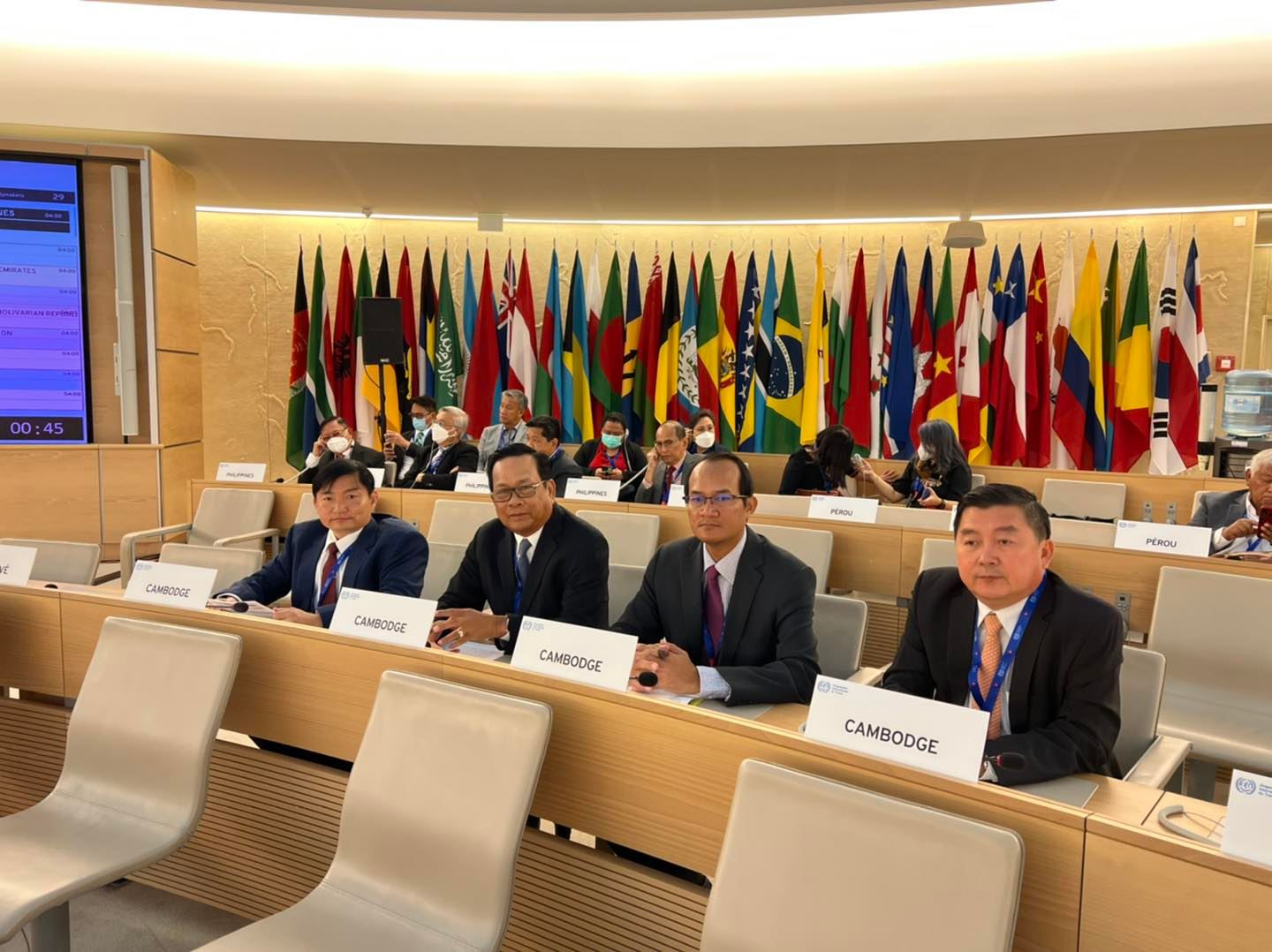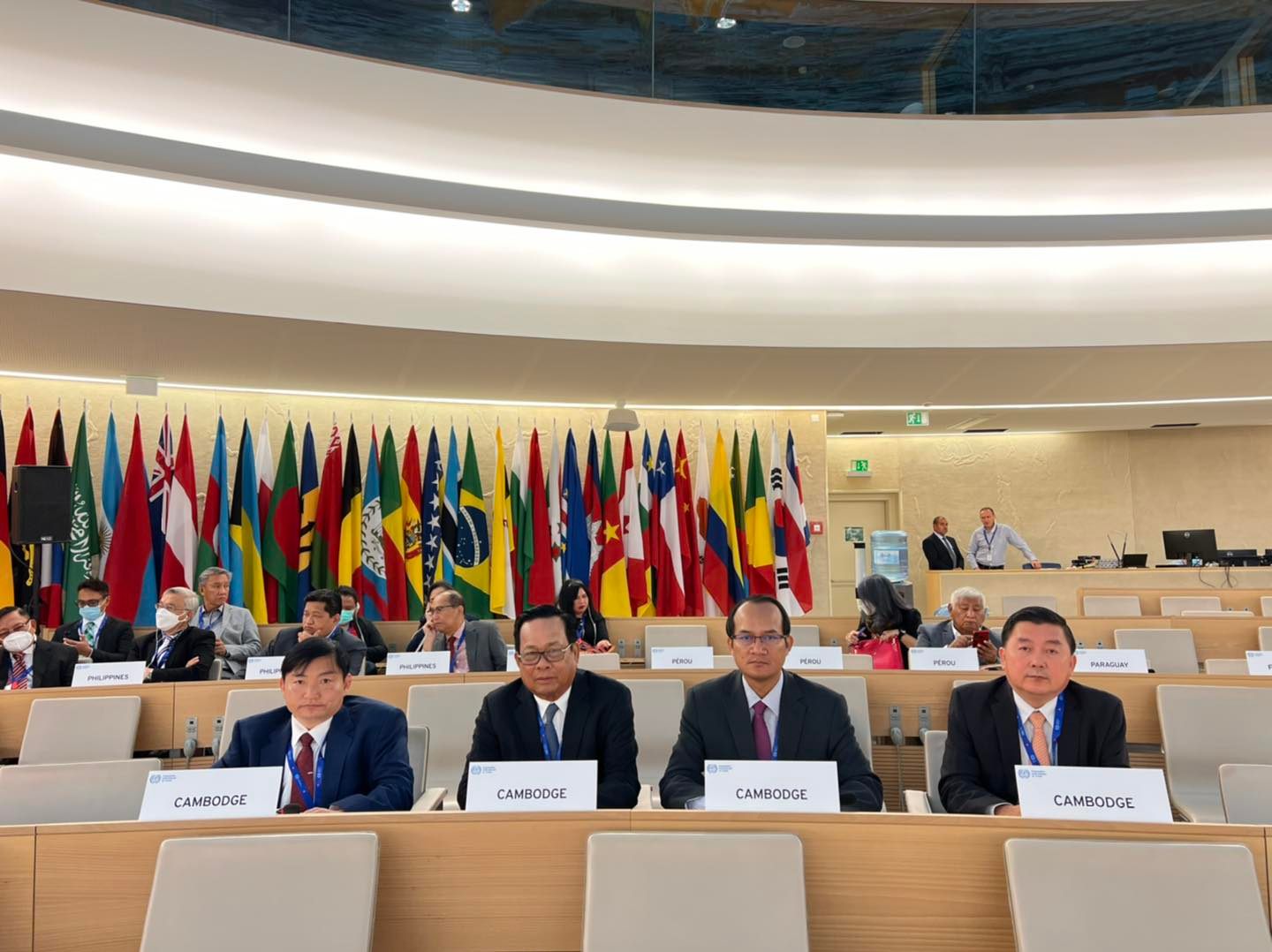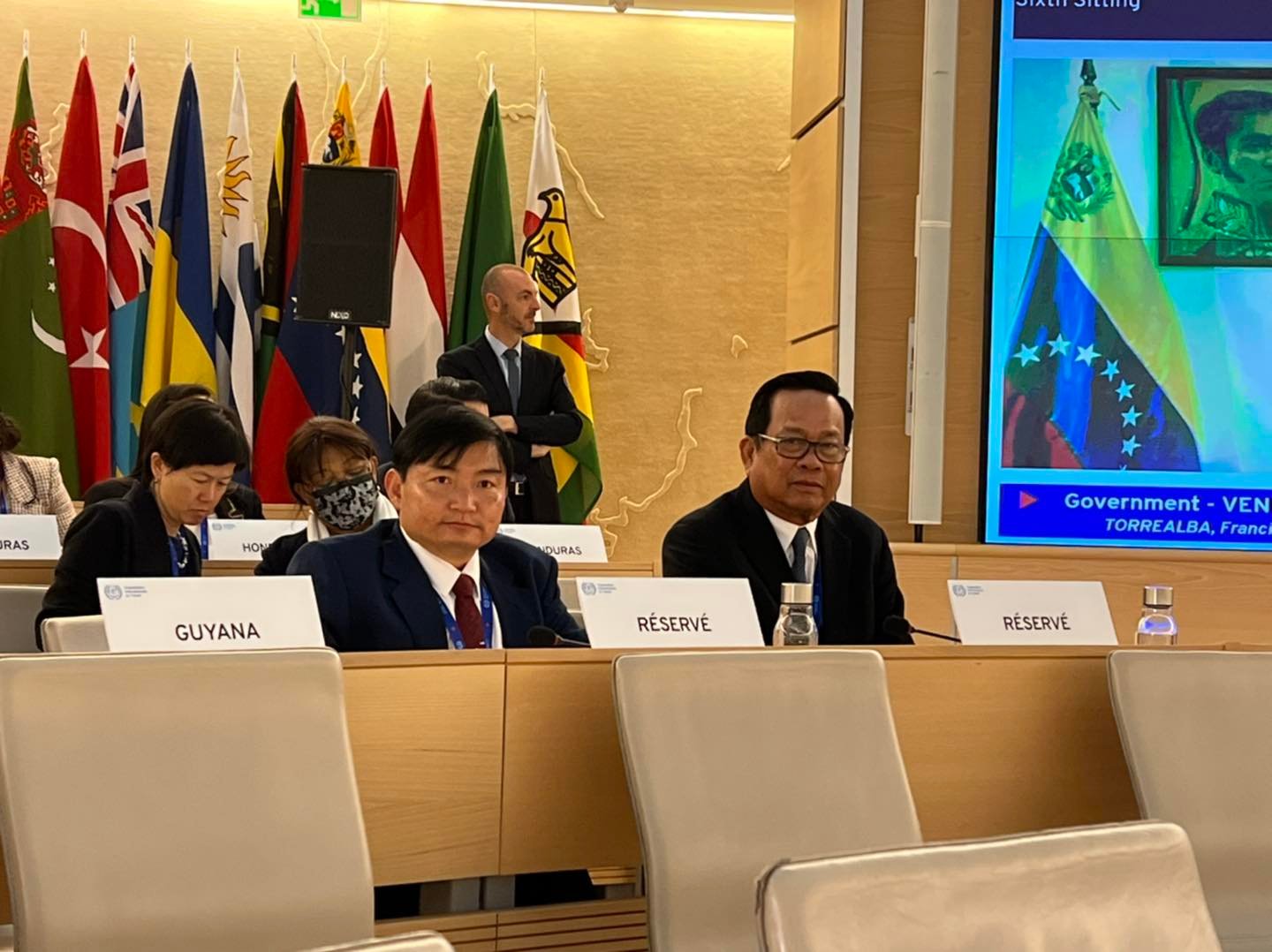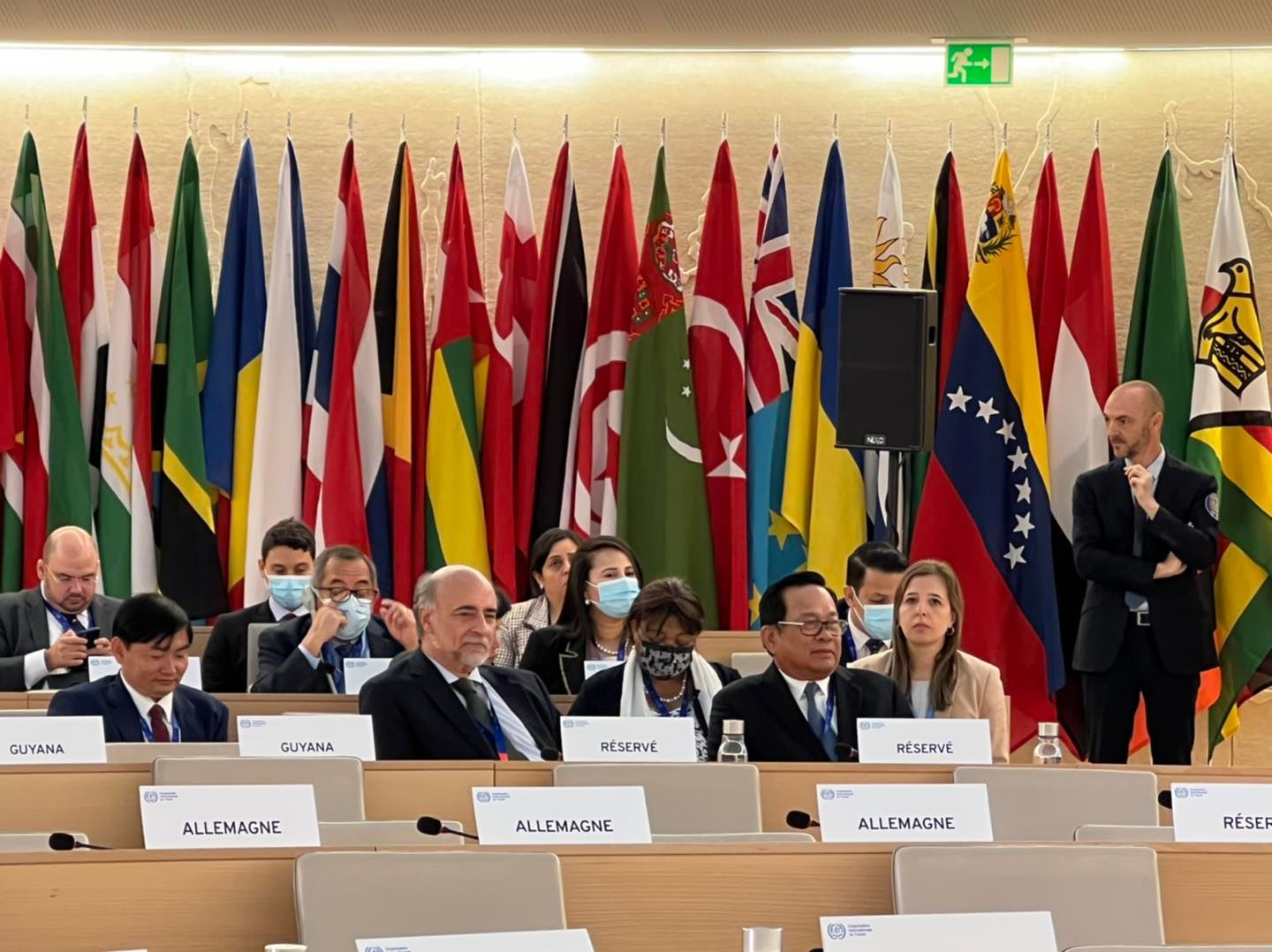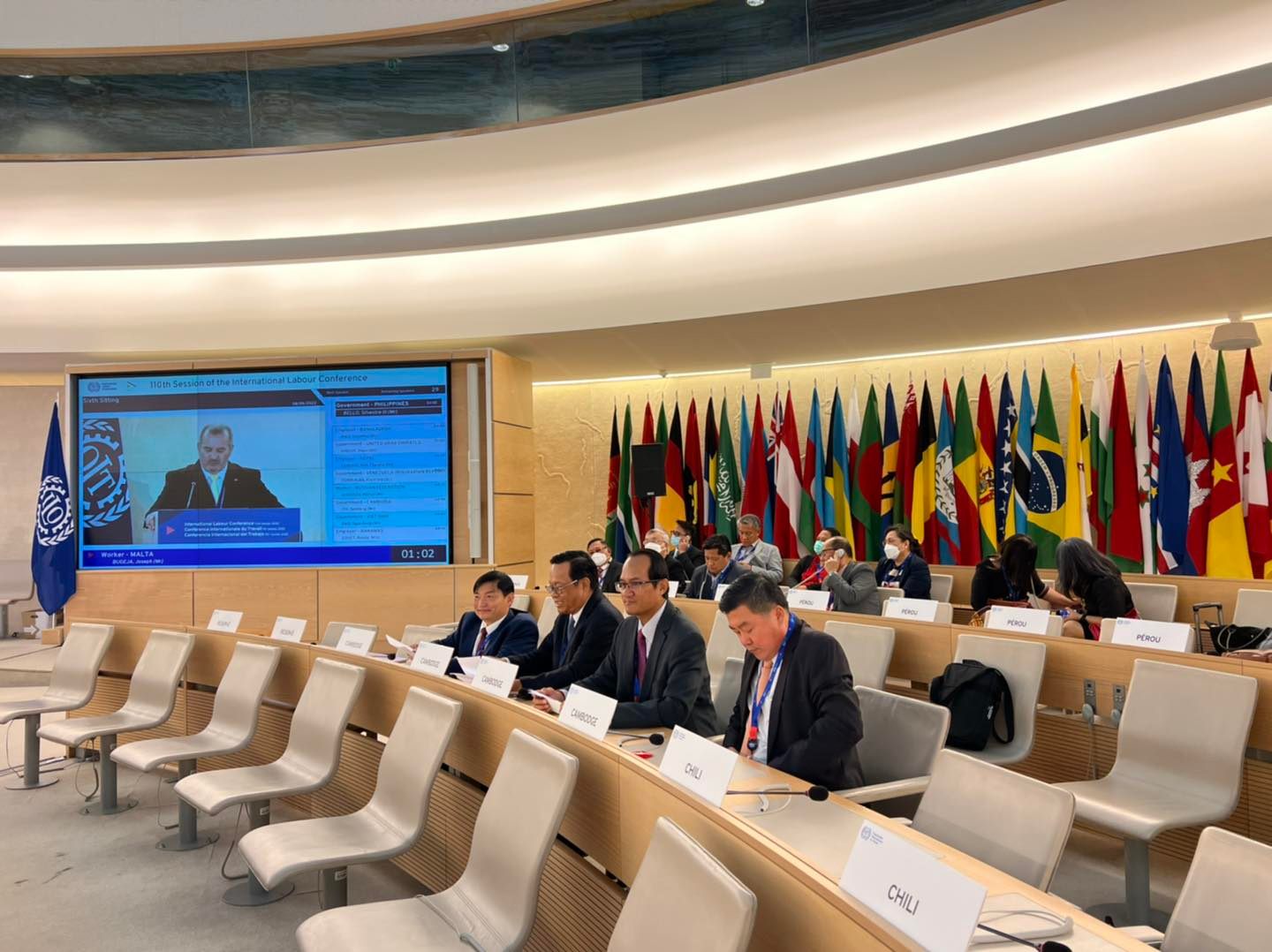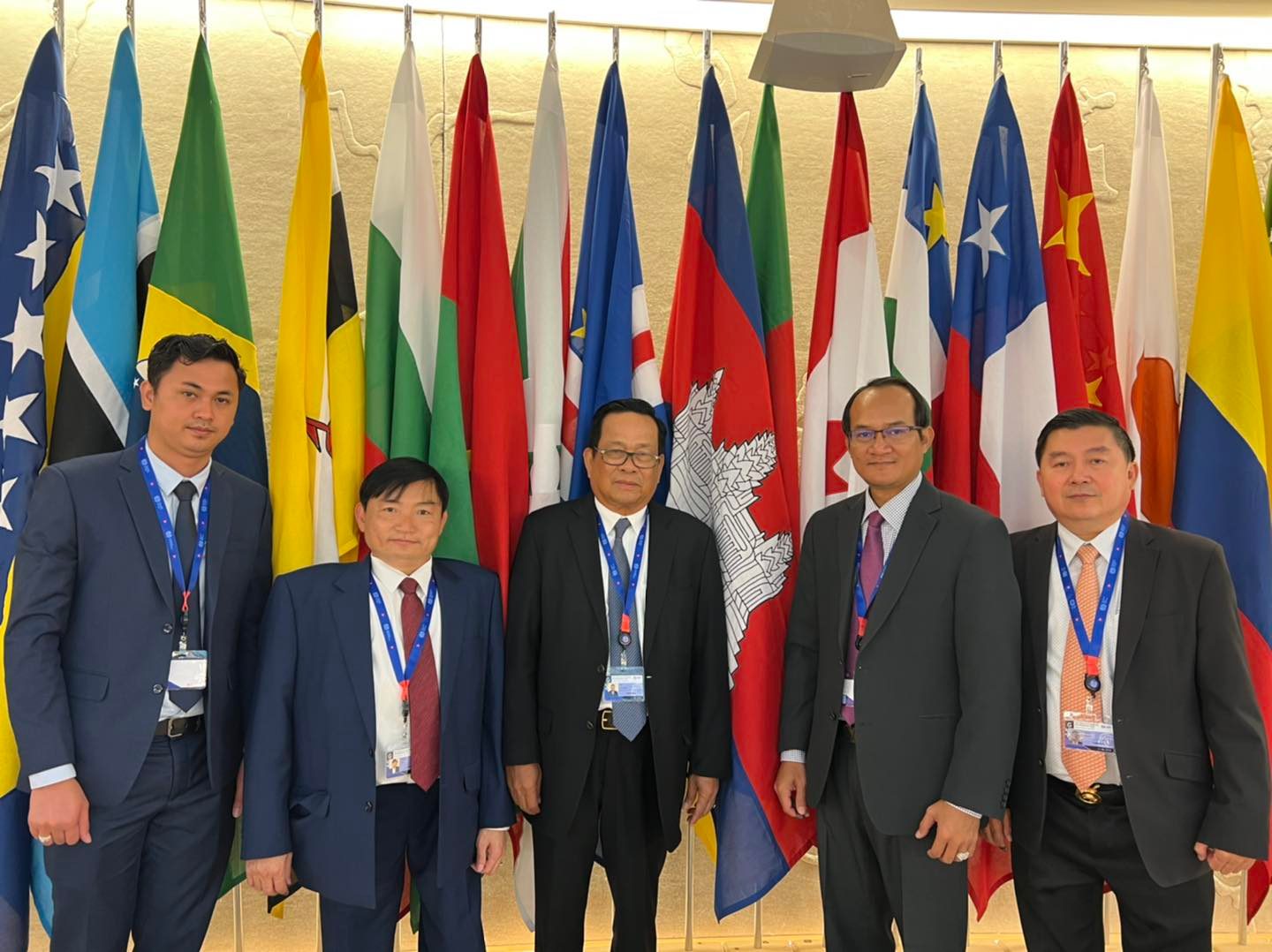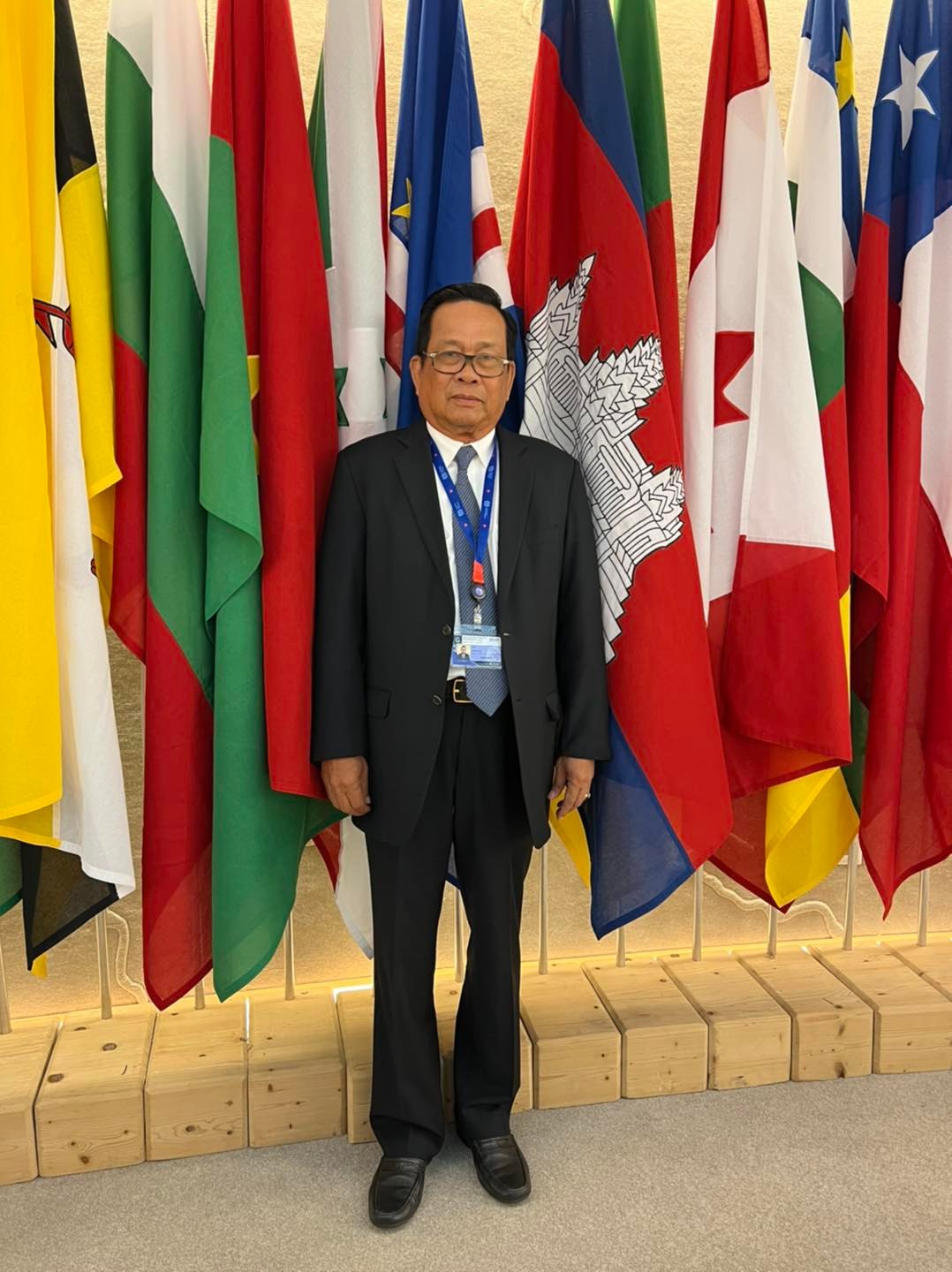SWITZERLAND: The Cambodian Minister of Labor, Ith Sam Heng, extended his high appreciation for the achievements made by the International Labor Organization (ILO), which has continued to significantly contribute to the socio-economic development of Cambodia, as well as other member countries, through the launch of a program promoting social justice and decent work for workers. The Minister of Labor made this statement at the 110th session of the International Labor Conference in Switzerland on Wednesday, 8 June.
Minister Ith Sam Heng stated that the ILO is an important development partner of the Cambodian government who has, through the continued implementation of programs such as the Better Factories Cambodia project, played an important role in improving working conditions and developing the textile, garment, and footwear industry in Cambodia. In addition, Cambodia has been implementing a decent work program in five phases since 2005. The fifth phase, from 2019-2023, was organized to coincide with the 50th anniversary of Cambodia's ILO membership.
The Royal Government of Cambodia strongly hopes that the ILO's fundamental principles, which focus on tripartite mechanisms and social dialogue, will be able to address the issues at hand and achieve the ILO mission to continue promoting decent and productive work for everyone.
A series of global outbreaks of Covid-19 since 2019 have severely affected global social and economic development, and caused the loss of tens of millions of lives, jobs and income.
The Labor Minister said during the international conference that the Royal Government of Cambodia has launched and successfully implemented a 10-round package of intervention measures focusing on four pillars: the fight against Covid-19, livelihood stabilization, especially for the poor and vulnerable, as well as the unemployed, keeping businesses afloat and maintaining jobs, security, public order, and social stability.
"The government has implemented measures to address the impact on employers and workers, including allowing severely affected factories to suspend their employment contracts, receive subsidies and soft skills training, facilitating of duties, and vaccinations for workers in factories and enterprises, improving working conditions and occupational safety and health, protecting the rights and freedoms of professional organizations, maintaining harmonization in industrial relations and providing social protection to workers, both domestic and Cambodian migrant workers, in accordance with the policies of the Royal Government, national laws, and regulations in force as well as the ILO Convention that Cambodia has ratified," said the Labor Minister.
He further affirmed that he supports the recommendations made in the report by the ILO Director-General, Guy Ryder, titled "The Least Developed Countries: Crisis, Structural Transformation, and the Future of Work,” the content of the draft report on "Decent Work and the Social and Solidarity Economy (SSE)," as well as the "Global Call to Action for a human-centered recovery from the Covid-19 crisis that is inclusive, sustainable and resilient,” that will contribute to achieving the common goals of the 2030 Agenda of the United Nations’ National Sustainable Development Strategies (NSDS) and the ILO historic mandate to achieve social justice and social work for all.
Cambodia became a member of the ILO in 1969. Since the early 1990s, the ILO has been an active partner in Cambodia's economic, social, and democratic restoration, playing a key role in helping to restore livelihoods, create sustainable jobs, rebuild infrastructure, and strengthen democratic institutions.
According to the ILO, although the poverty rate continues to decline in Cambodia, rural poverty remains high at 40 percent. Eighty-five percent of the population work in the informal economy, mostly in agriculture, forestry, and fisheries, and in small and medium enterprises (SMEs). The formal sector of clothing and tourism is the main engine of growth, with garment production accounting for 80 percent of Cambodia's exports and employing more than 600,000 workers, mostly women.
